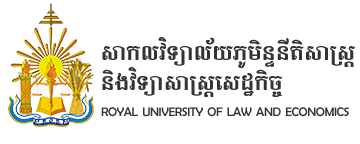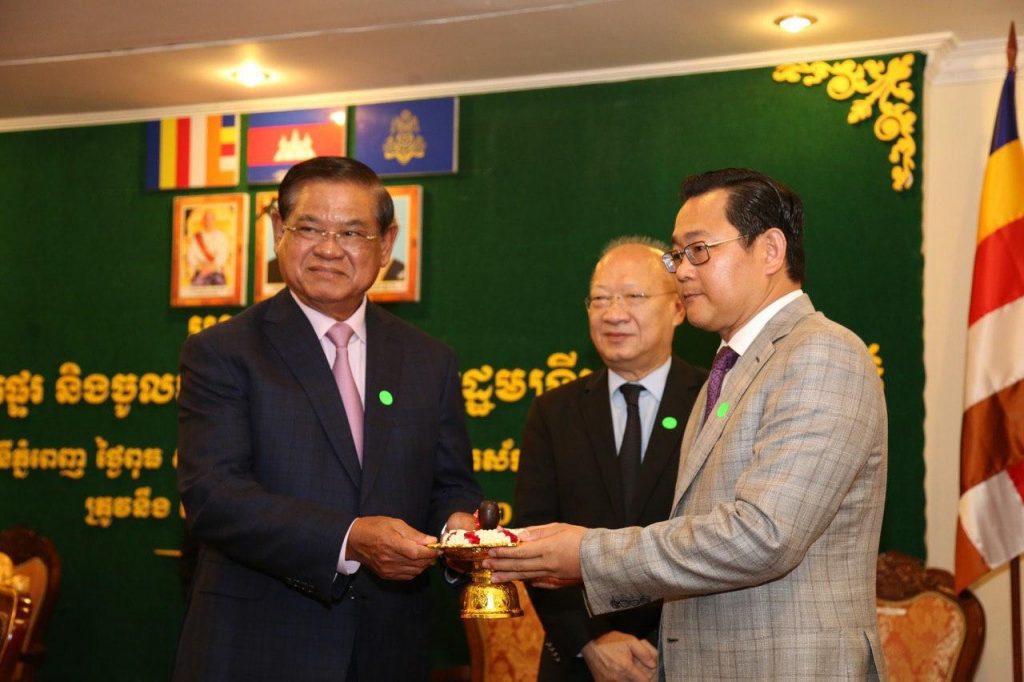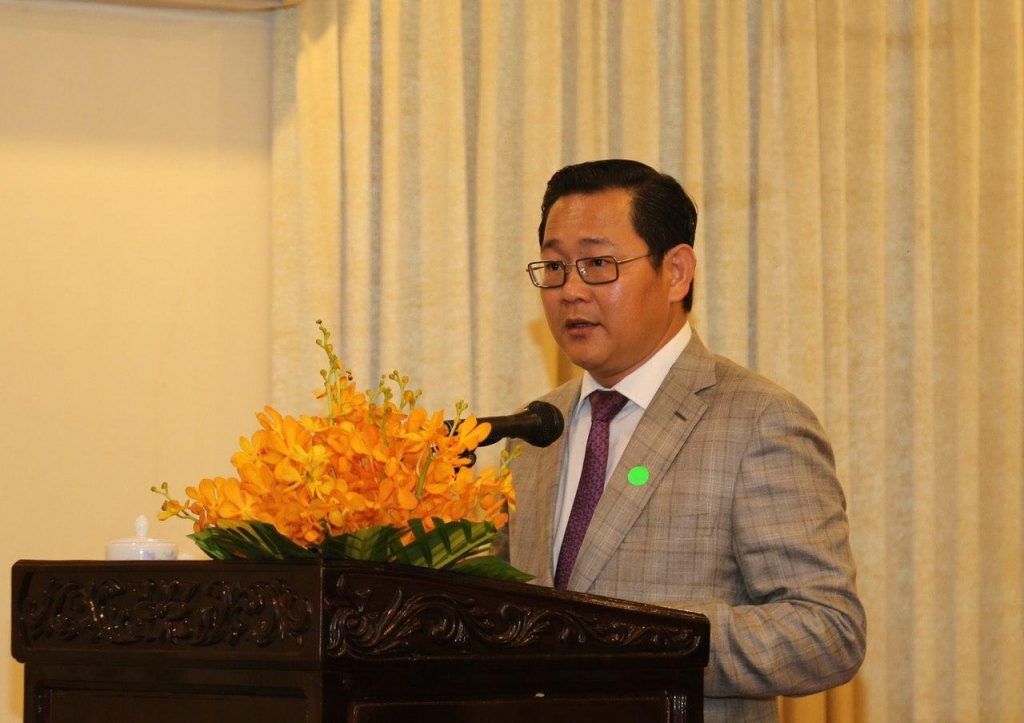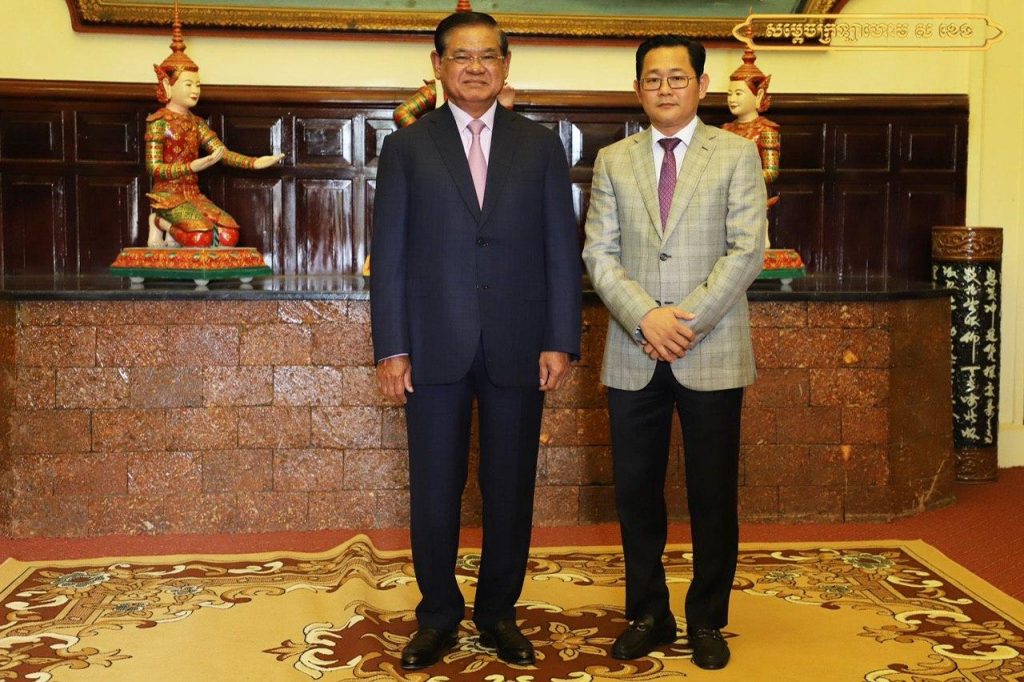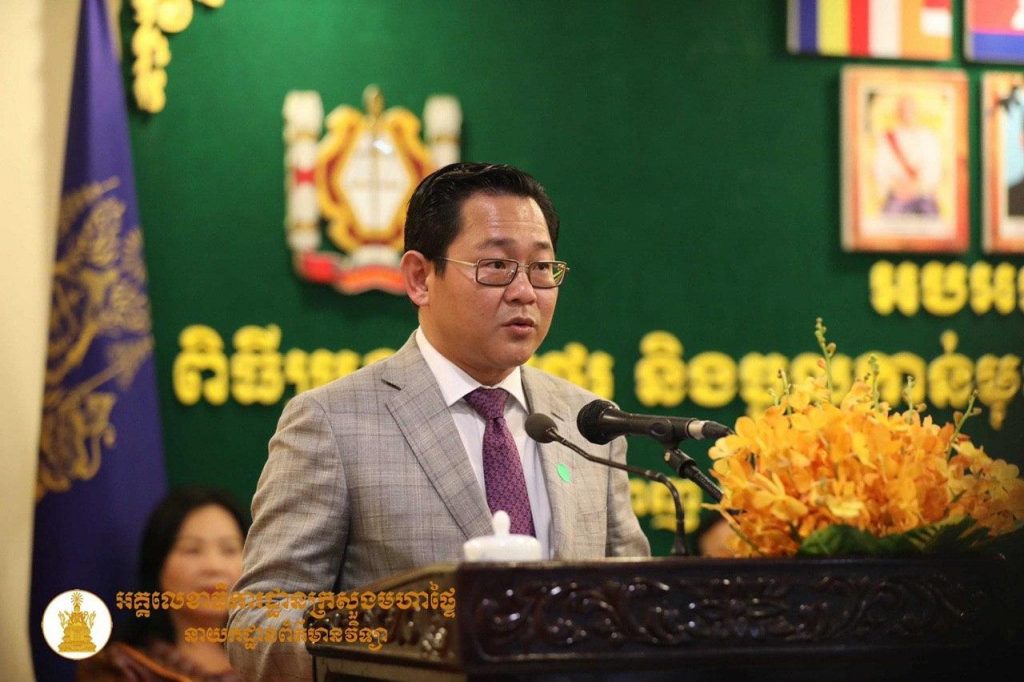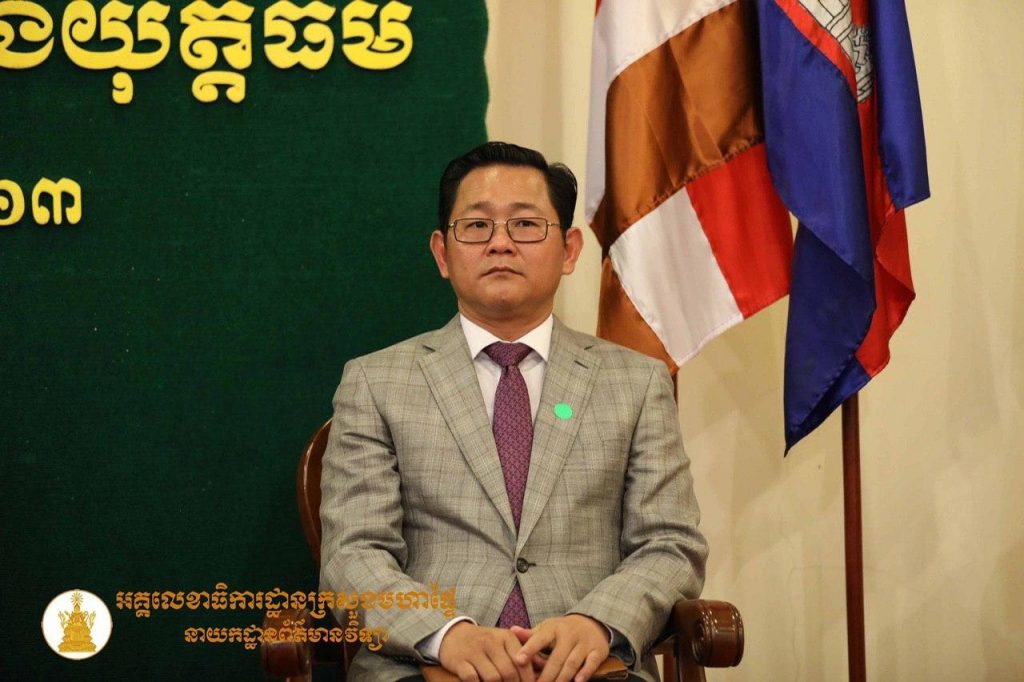H.E. KOEUT Rith, former student of the French Cooperation Department of the Royal University of Law and Economic Sciences became the Minister of Justice on March 30th 2020.
The French Cooperation Department of the Royal University of Law and Economics (RULE) continues to train students for service at the highest levels. Proof of the quality and value of the education provided by the Department is the latest cabinet appointment in Cambodia.
Appointed by His Royal Highness Norodom Sihamoni, King of Cambodia, H.E. KOEUT Rith took office as Minister of Justice on March 30, 2020 in Phnom Penh. He began studying law more than twenty years ago in the French Cooperation Department of the Royal University of Law and Economics and continued his studies in France with a scholarship from the French Embassy.
The following biography of H.E. KOEUT Rith is based on recent interviews of those who worked with him throughout his student and legal career, who shared details of his remarkable journey with the French Cooperation Department within the Royal University of Law and Economics.
An exemplary university career in Cambodia and France
In the mid-1990s, H.E. KOEUT Rith, then a young Grade 12 student who had just passed his national exam, chose to specialize in law and then began studying law at the Royal University of Law and Economics. Not only did he choose to study law at RULE, but chose the most difficult and challenging path a law student could pursue in Cambodia at that time: the French Cooperation Department. Thanks to diligent efforts and very good marks, H.E. KOEUT Rith obtained a scholarship, granted by the Republic of France to a very small number of students, which allowed him to continue his legal studies in Lyon, France.
In 2000, he obtained a bachelor’s degree in private law at the University Lumière Lyon 2, then the following year a master’s degree (Master 1 at the time) with the distinction “Very good” from the same institution. In 2002, he specialized in criminal law and criminal sciences (Master 2) at Lyon 3 university.
Mr. Maurice Gaillard, Professor Emeritus of Public Law, was one of the first foreigners to return to Cambodia for exploratory missions in 1992 and was Project Manager at the Royal University of Law and Economics in the late 90s.
“Rith was a student of great intellectual vitality. At the end of his secondary studies, he did not know the French language. In one year, he acquired the linguistic bases, which enabled him to successfully enter the specialized field. In two or three years, he became fluent in French. In 1999, on his arrival at Lyon 2, he accomplished a remarkable feat by finishing the course of study, the following year, as head of his promotion, which consisted of students of all nationalities combined. “
A career dedicated to the Rule of Law in Cambodia
After graduating, H.E. KOEUT Rith returned to Cambodia with a desire to “share his knowledge with Cambodian students and serve his country” at the heart of his professional goals.
He began his career as a teacher at the Royal University of Law and Economics (RULE) where he continued to teach for the French Department of Law until 2016.
H.E. KOEUT Rith has been involved in a number of academic legal projects, including the books: “Introduction to Cambodian law” (2003 and 2005), “Explanation of the project of the development of the Penal Code and its contribution to the study of Cambodian criminal law” (2005) and a volume published by the Konrad Adenauer Foundation also entitled: “Introduction to Cambodian law” (2016). He is also the author of a highly-noted article on Cambodian criminal law, published in the Bulletin of the Royal University of Law and Economics in 2006.
Ms. Béatrice Balivet coordinated the compilation of the book on Cambodian law in 2005. She remembers well the important role that H.E. KOEUT Rith played in this pioneering work of putting together one of the first high-quality textbooks on Cambodian law:
“Rith KOEUT’s very fine professional career is, without a shadow of a doubt, that of an exceptional man. “Hard-Working, intelligent, in the truest sense of the word, he is endowed with rare qualities: the gifts of understanding tempered with kindness.
“He provides a positive example, for the students and, indeed, for all of us as the struggle to succeed is, above all, a struggle against oneself. He was able to acquire critical skills at all stages of his life: learning the French language as well as studying law, other cultures and many other things … to give the best of himself in order to meet the challenges that he set himself, while remaining attentive to others and, at the same time, enthusiastic. A new, immense and delicate challenge opens up before him. We are eager to read the pages he will write in this new chapter”
In 2007, he joined the Cambodian Ministry of Justice, first as Undersecretary of State and then promoted to Secretary of State in 2013.
Closely involved in the work of the of compiling the Cambodian Criminal and Criminal Procedure Codes, he contributed to the harmonization of laws in criminal matters throughout the country.
François-Louis COSTE, former Prosecutor at the Courts of Appeal of Paris and Lyon, has known H.E. KOEUT Rith since he was a student and had the opportunity to work with him in 2015 on a Cambodian criminal law project. He paints a portrait of him with nuance and color:
“KOEUT Rith, I knew him at Lyon (France) when I was giving a criminal law course. I remember that one day, when some French students were undisciplined, I called them to order saying: ‘Respect the work of your comrades and especially of these young Cambodians! Among them, one or the other will undoubtedly be a minister in his country. Show yourself worthy of being in their company!’
“I didn’t intend to prophesy but I didn’t feel like I was taking much of a risks with that statement. Because this student had such a remarkable sense of concentration, he gave the impression of learning everything without effort. What is more important to me, he had a sense of humor, which, when one is a student, is always useful for coping with the surprises of life abroad, and when, one is a minister, constitutes an essential quality in the face of opposition. And then, when I saw him again during my missions devoted to the Rule of Law in Cambodia, I was very touched by the gestures of attention he showed me. I know that he is courageous, determined and respectful, in a word, having all the seeds necessary for the flowerbed of justice to flourish under his ministry.”
A continuing relationship with the French Cooperation Department in Law
Even after being nominated to be Under-Secretary of State in 2007, H.E. KOEUT Rith always kept a close relationship with the French Cooperation Department. M. Laurent MESMANN, Head of Project of the French Cooperation Department at RULE, testifies about this strong linkage:
“H.E. KOEUT Rith has always been, since I arrived in Cambodia and at the Royal University of Law and Economics more than twelve years ago, one of the most faithful supporters not only of the Royal University of Law and Economics as an institution, but especially of its students. I like to think that he sees in them his own exemplary journey, made through hard work which has finally been rewarded. I think that the dual-degree programs at RULE, whether in law or in economics, really allow brilliant and serious students to distinguish themselves and access positions that their family or social backgrounds might have otherwise precluded. It is this role of human advancement and flourishing, based exclusively on academic excellence, that French universities and the French embassy continue to support today. We therefore call on all students, who wish to follow his excellent example, to take advantage of these excellent dual-degree programs, which are of great quality and provided at relatively low cost to meritorious students. However, we must also keep in mind success in these programs requires considerable self-motivation and a lot of work throughout the three years spent within the French Cooperation Center, whether in the field of law or of economics and management. And, after all of these efforts in Cambodia, the students must then apply themselves in France in a rigorous Master’s Degree program there. It is not easy, but I really hope that our young students will in turn become great judges, lawyers or Ministers and will continue to work to strengthen the rule of law in Cambodia as well as contribute to further advancing French-Cambodian cooperation. In that sense, the first action of our new Minister to launch a six-month campaign to resolve the backlog of court cases is very promising start to what will certainly be a long and fruitful career as Minister.”

 ភាសាខ្មែរ
ភាសាខ្មែរ